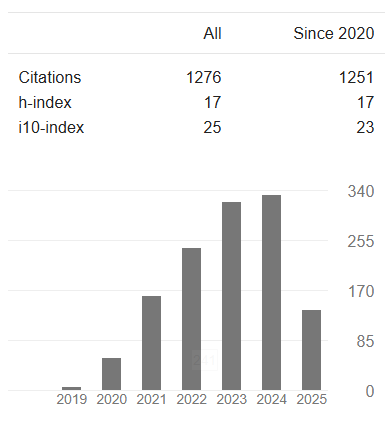Consumer Confidence Index in Coronavirus Disease (Covid-19) Era
DOI:
https://doi.org/10.14421/EkBis.2021.5.1.1271Keywords:
Consumer Confidence Index, COVID-19, Economy.Abstract
The consumer confidence index is an economic indicator designed to measure consumer confidence or doubt about the economic conditions of a country. The consumer confidence index can have an impact on the level of consumer interest in shopping so that it affects business activities, industry, and has a direct impact on the rate of econom ic growth. The condition of the consumer confidence index continues to improve, even though it is still during the Covid-19 pandemic and is still in the pessimistic zone, namely the index is below 100, the August 2020 consumer confidence index is 86.9 that is higher than in July 2020 of 86.2. This study uses trend analysis to estimate or forecast the future, and data obtained from the Bank Indonesia Consumer Survey. The results of this study show that the improvement in consumer confidence is drive by consumer perceptions of current economic conditions, namely increased income, job availability, and purchasing of goods.
Downloads
References
Bank Indonesia. 2020. “Survei Konsumen (SK),” 1–16. file:///C:/Users/mrfac/SK Februari 2020.pdf.
Dees, S., & Soares Brinca, P. (2013). Consumer confidence as a predictor of consumption spending: Evidence for the United States and the Euro area. International Economics, 134, 1–14.
European Commission, 2011. Economic and Financial Affairs. The Financial and Economic Crisis - A Chronological Overview. Brussels.
Ferrer, E., Salaber, J., & Zalewska, A. (2016). Consumer confidence indices and stock markets’ meltdowns. The European Journal of Finance, 22(3), 195–220.
Juhro, S. M., & Iyke, B. N. (2020). Consumer confidence and consumption expenditure in Indonesia. Economic Modelling, 89, 367–377.
Ludvigson, S. C. (2004). Consumer Confidence and Consumer Spending. Journal of Economic Perspectives, 18(2), 29–50.
Macready, A. L., Hieke, S., Klimczuk-Kochańska, M., Szumiał, S., Vranken, L., & Grunert, K. G. (2020). Consumer trust in the food value chain and its impact on consumer confidence: A model for assessing consumer trust and evidence from a 5-country study in Europe. Food Policy, 92, 101880.
Njindan Iyke, B. (2019). A Test of The Efficiency of The Foreign Exchange Market in Indonesia. Buletin Ekonomi Moneter Dan Perbankan, 21(February), 439–464.
Ou, Y.-C., de Vries, L., Wiesel, T., & Verhoef, P. C. (2014). The Role of Consumer Confidence in Creating Customer Loyalty. Journal of Service Research, 17(3), 339–354.
Sorić, P. (2018). Consumer confidence as a GDP determinant in New EU Member States: a view from a time-varying perspective. Empirica, 45(2), 261–282.
Van Den Brakel, J., Söhler, E., Daas, P., & Buelens, B. (2017). Social media as a data source for official statistics; the dutch consumer confidence index. Survey Methodology, 43(2), 183–210.
Zorio-Grima, A., & Merello, P. (2020). Consumer confidence: Causality links with subjective and objective information sources. Technological Forecasting and Social Change, 150, 119760.





























 This work is licensed under a
This work is licensed under a 